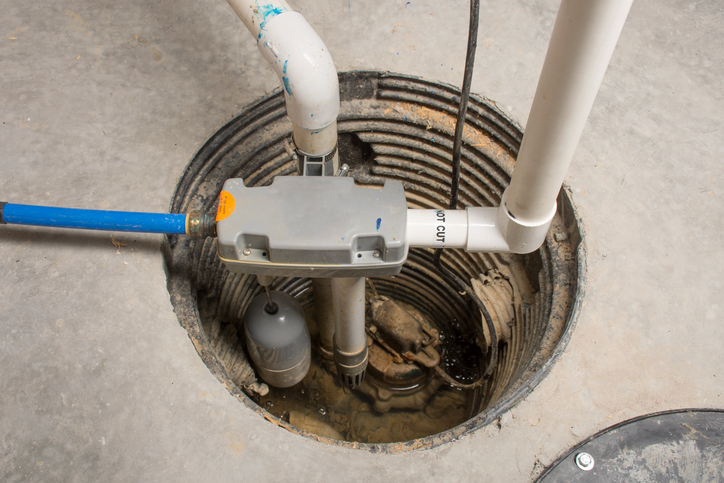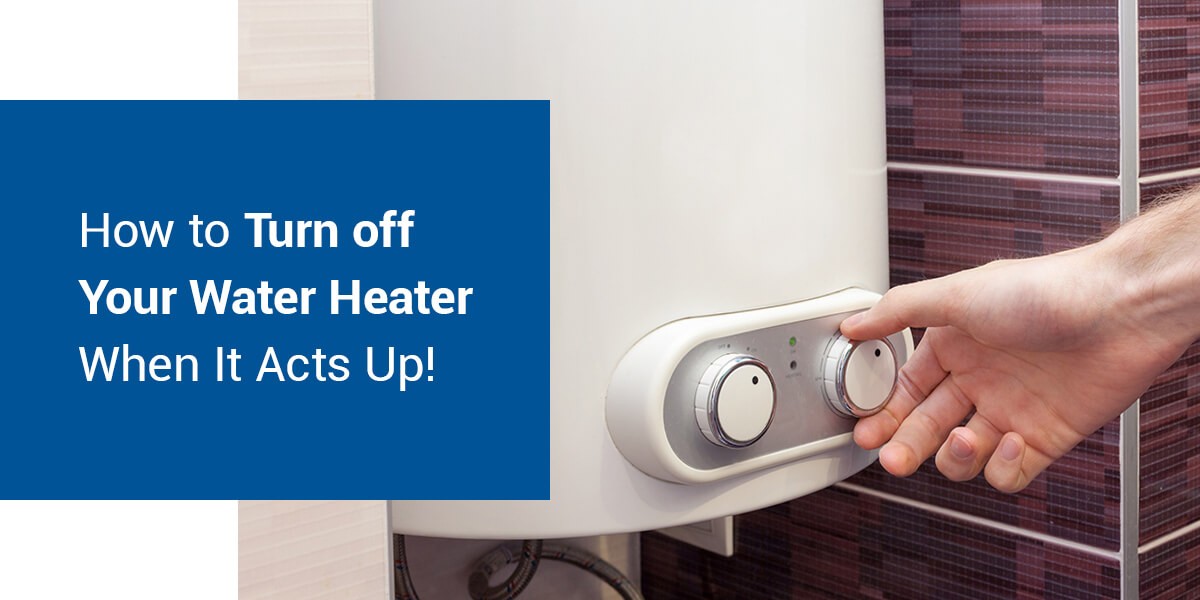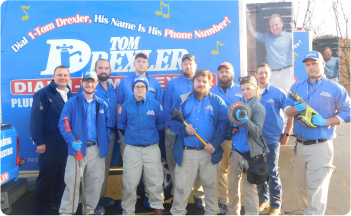
Flooding is a common springtime concern for homeowners in Louisville and Cincinnati, where heavy seasonal rains lead to an overflowing Ohio River.
When flooding occurs, it often leads to excessive moisture and pooling water that can wreak havoc on your home’s structural integrity. Rising water levels pose a threat to basements and crawl spaces, so a reliable sump pump is crucial for protecting homes from water damage that can result in costly repairs.
These systems efficiently remove excess water, helping to keep properties dry and secure during the wettest months of the year.
Understanding Sump Pumps
Sump pumps are pivotal devices designed to remove excess water from basements and crawl spaces, preventing water damage and other issues. These systems are installed in a sump pit, which is a basin dug into the lowest part of your basement or crawl space.
During operation, a sump pump kicks on automatically when water levels rise and reach a certain point, activating a float switch. The pump then runs to promptly and efficiently direct the collected water away from the home’s foundation through a discharge pipe.
By quickly managing excessive water flow in low-lying areas, sump pumps aim to protect properties from flooding, mold growth, and structural damage. This makes them an essential appliance for homes in flood-prone areas.
Types of Sump Pumps
Sump pumps are available in two main forms, each with its own set of advantages depending on your specific needs:
Submersible Sump Pumps
Submersible sump pumps sit underground, taking up little space. By running underwater, they operate quietly and pump more water per minute for efficiency.
Pedestal Sump Pumps
These sump pumps sit above the tank on a pedestal, keeping it dry and making it easier to service. They’re also more affordable and will last longer due to less wear and tear.
Spring Flooding Challenges in Louisville & Cincinnati
Spring flooding is a common challenge in our area due to heavy seasonal rainfall and the tendency of the Ohio River to overflow, which affects both cities.
Severe spring storms and rising river levels can result in significant flooding in low-lying areas like basements and crawl spaces, making sump pump installation crucial for protecting properties from water damage.
Impact on Homes
Excessive moisture and flooding act as a breeding ground for several issues, including:
- Unwanted pests
- Mold and mildew growth
- Water damage to drywall and flooring
- Water damage to furniture and other items in your basement
- Foundation issues
How Sump Pumps Mitigate Flood Risks
Sump pumps run automatically to collect and pump out water intrusion, preventing the risk of flooding in low areas of the home.
Water Detection & Removal
When water reaches a certain point in the sump pit, the float switch is triggered, and the pump redirects water flow out of your home through a discharge pipe. This effectively prevents interior flooding.
Integration with Home Drainage Systems
Sump pumps work in tandem with your home’s interior and exterior drainage systems to effectively remove water intrusion in a timely manner. Your interior drainage system consists of a network of pipes that direct the water outside, and the exterior drainage system comprises gutters and downspouts to direct water away from your home’s foundation.
Importance of Regular Maintenance
Like any other plumbing appliance, sump pumps require regular checkups to ensure they operate properly. While they’re relatively low-maintenance, they still need to be checked periodically, and doing so before spring will guarantee your unit can combat the rain.
Homeowners can conduct DIY testing by pouring water into the sump pump, ensuring the system activates, and fully removing the water once the test is complete.
If your system isn’t working as intended, you should contact an expert for professional sump pump maintenance.
Common Issues & Troubleshooting
Sump pumps aren’t immune to issues. They can face:
- Power failures: Check to see if your circuit breaker has tripped and reset it.
- Debris blockages: Clean out any debris and keep the discharge pipe free from obstructions.
- Mechanical wear over time: Try testing your sump pump yourself and contact our experts if the issue persists.
- And more
It’s important to understand these problems and know when help is needed.
Backup Systems for Enhanced Protection
Although sump pumps are designed for reliability, it’s best to ensure you have a dependable backup should issues occur. You can choose from one of these:
- Battery-backup sump pumps maintain continuous power by automatically activating when your main sump pump fails, or the power goes out.
- Water-powered backup systems use the pressure from your home’s municipal water supply to operate without electricity, making them an extra reliable and efficient option for backup use.
Schedule Sump Pump Services in Louisville, KY & Cincinnati, OH
Sump pumps are critical for protecting your Louisville or Cincinnati home from the damaging effects of spring flooding. If you need a professional assessment or haven’t yet installed a sump pump, the Tom Drexler Plumbing, Air & Electric experts are here to help.
We offer comprehensive solutions to keep your home dry and protected, no matter the weather outside. Proactive care now can save you from costly repairs in the future.
Be prepared for the next storm. Schedule a sump pump service with our team today to ensure it’s in top condition.







